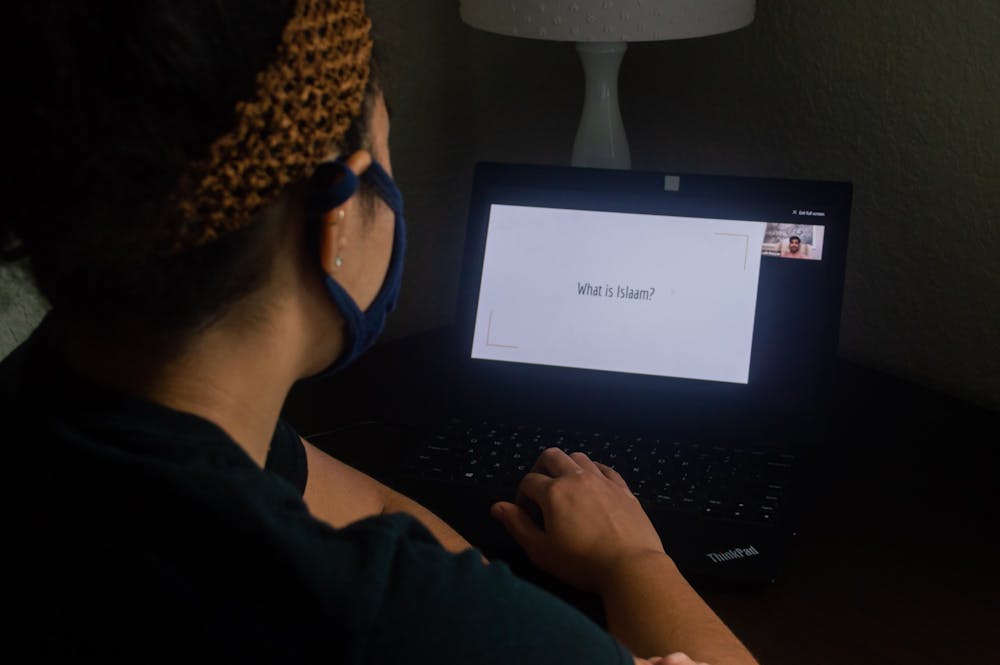Before the outbreak of COVID-19, the Muslim Students Association would meet every Friday night in a crowded room to pray, lined up shoulder-to-shoulder.
Now, their shoulders are separated by Zoom boxes, and they no longer congregate in one room. Instead, they continue to meet from their own individual bedrooms.
When UNC switched to a remote-only learning strategy in the spring, religious student groups scrambled to adjust to a new normal. These groups were used to meeting in large spaces to socialize and pray.
When the University made the same switch last week, however, groups not only expected it, but were prepared for it.
Architha Pavuluri, president of Hindu YUVA, was among club leaders who chose to forgo in-person events from the beginning.
“We didn't want students sitting at home to feel alienated, so we went ahead and had all of our meetings virtual from the get-go,” Pavuluri said. “We had talked about some in-person meetings if there was interest in it, but our initial plan was to go online, just to be safe.”
The Muslim Students Association decided to host their general body meetings online before the semester began, though the organization chose to initially keep their prayer room open. Four people were permitted in the room at a time, but few chose to visit. When classes went remote last week, the group elected to close the on-campus space.
“We thought it was best to close it and if students on campus do need a place to pray or other resources, they can reach out to us and we'll find them something,” Nour Zarrouk, the organization’s community service chair, said.
UNC Hillel also chose to conduct their meetings remotely before the start of the semester, closing their building and canceling their weekly Shabbat dinners. Instead, students can sign up to pick up Shabbat kits on the building’s doorstep and join a virtual celebration each Friday at 5 p.m.




